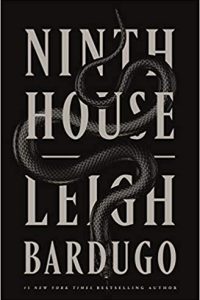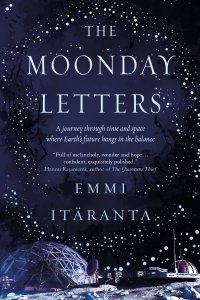Gary K. Wolfe reviews James Bradley
James Bradley is an Australian novelist and critic who ought to be better known in the US; the only previous novel of his that I have seen was The Deep Field (from way back in 1999), which seems to have escaped the notice of many genre readers despite its near-future setting and its sophisticated thematic use of photography and paleontology. It could be that Bradley’s deep focus on character and occasionally meditative prose seem better suited for the kind of mainstream-but-more-or-less-SFnal markets that writers like Richard Powers and Carolyn See occasionally find themselves in. I’m not aware that (as of this writing) his new novel Clade is scheduled for a US publication. It should be. Before getting into details, it might be useful to point out that this James Bradley is not the James Bradley who writes the kind of WWII non-fiction that Tom Hanks likes, and that Clade is not the 2003 Mark Budz nanotech novel of the same title.
Instead, it is among the most literate and humane contributions to that slowly emerging tradition of what is sometimes called ‘‘slow apocalypse’’ fiction – tales that grapple with the emergent realities of climate change, species die-offs, virulent new diseases, and the inexorable pattern of the world going irreversibly to hell in a comparatively pokey handbasket. Historically, apocalyptic literature has dealt with one catastrophe at a time – deadly plagues in Mary Shelley, George R. Stewart, or Stephen King; poison gases in M.P. Shiel or Arthur Conan Doyle; nuclear war in pretty much everything from the 1950s; deluges, floods, droughts, earthquakes, meteor strikes, volcanoes, alien invasions, or just really bad weather in novels and movies you could name as easily as I can – the epic-scale equivalent of the world getting creamed by a taxi while walking across the street. These days, we’re faced with disturbing evidence that the single-use trauma may be less of a threat than a complex set of processes already well underway, and it’s a little surprising how slow fiction has been in recognizing this. There were early admonitions of multiple interconnected disasters in novels like Philip Wylie’s prescient but awful The End of the Dream back in 1971, and Kim Stanley Robinson has repeatedly called attention to these conditions, especially in his Science in the Capital trilogy, and Wil McIntosh’s Soft Apocalypse of a couple of years ago had moments of real power. Bradley’s novel may be the first to combine a deeply character-based family saga with this theme in a way that, recalling Stewart’s Earth Abides more than any recent novel, shows how each succeeding generation must come to expect less of the world.
The story covers several decades in the life of environmental scientist Adam Leith, his artist wife Ellie, their daughter Summer and grandson Noah, and other members of Leith’s extended family – the clade of the title. As it opens, Leith is in Antarctica noting the rapidly accelerating loss of the ice shelf while his wife of two years Ellie is trying to get pregnant through a fertilization clinic. A few years later, when the daughter that results is a little girl, periodic power outages, fires, and bird and fish die-offs serve as ominous portents, and a few years after that, when Summer is a teenager, the disasters have grown more violent – blizzards, tornados, methane eruptions, volcanos, coastal erosion. Still, the family tries to retain a semblance of the life that Adam and Ellie remember, while facing tensions of their own; they separate, and when Summer heads off to college, she becomes involved in drugs and petty crime, eventually ending up in a seedy kind of commune in Britain.
At this point, almost halfway through, Bradley permits himself his one full-scale disaster setpiece and his one plot-convenient coincidence, as Adam reconnects with Summer after nearly a decade and meets her young Autism Spectrum Disorder son Noah. Trapped near Cambridge when one of the periodic hurricane-force tropical storms ravages England with massive flooding, they barely manage to escape – but not before Bradley has signaled us that this section of the novel represents not only an acceleration of the pace of disaster, but his own diversification of narrative modes in conveying it. From this well-executed but familiar detour into survivalist adventure fiction, Bradley moves into a more meditative chapter involving Ellie’s meeting with a beekeeper (even Colony Collapse Disorder get added to the litany of bad news) and her involvement with the growing number of illegal refugees in Australia, and then shifts to a ‘‘journal of the plague year’’ chapter in which the diary of a young woman (whose Chinese mother has disappeared while trying to visit a sick relative back home, and whose relation to the Leith family only gradually becomes apparent) records the progression of a virulent and fatal worldwide plague. Still later chapters read more like traditional SF, as virtual ‘‘sims’’ are designed to reconstruct the personalities of those lost in the plague, and eventually intelligent extraterrestrial signals are discovered at a still-functioning observatory. Bradley brings off these various narratives with considerable skill, as if to suggest that the scope of what he wants to say can’t quite be encompassed in a purely linear narrative, but it’s his astute management of chronology, as each section leaps years ahead of the preceding one, that generates the novel’s haunting and elegiac feeling, making it a near-epic of loss, remembrance, and steadily diminishing hope.








